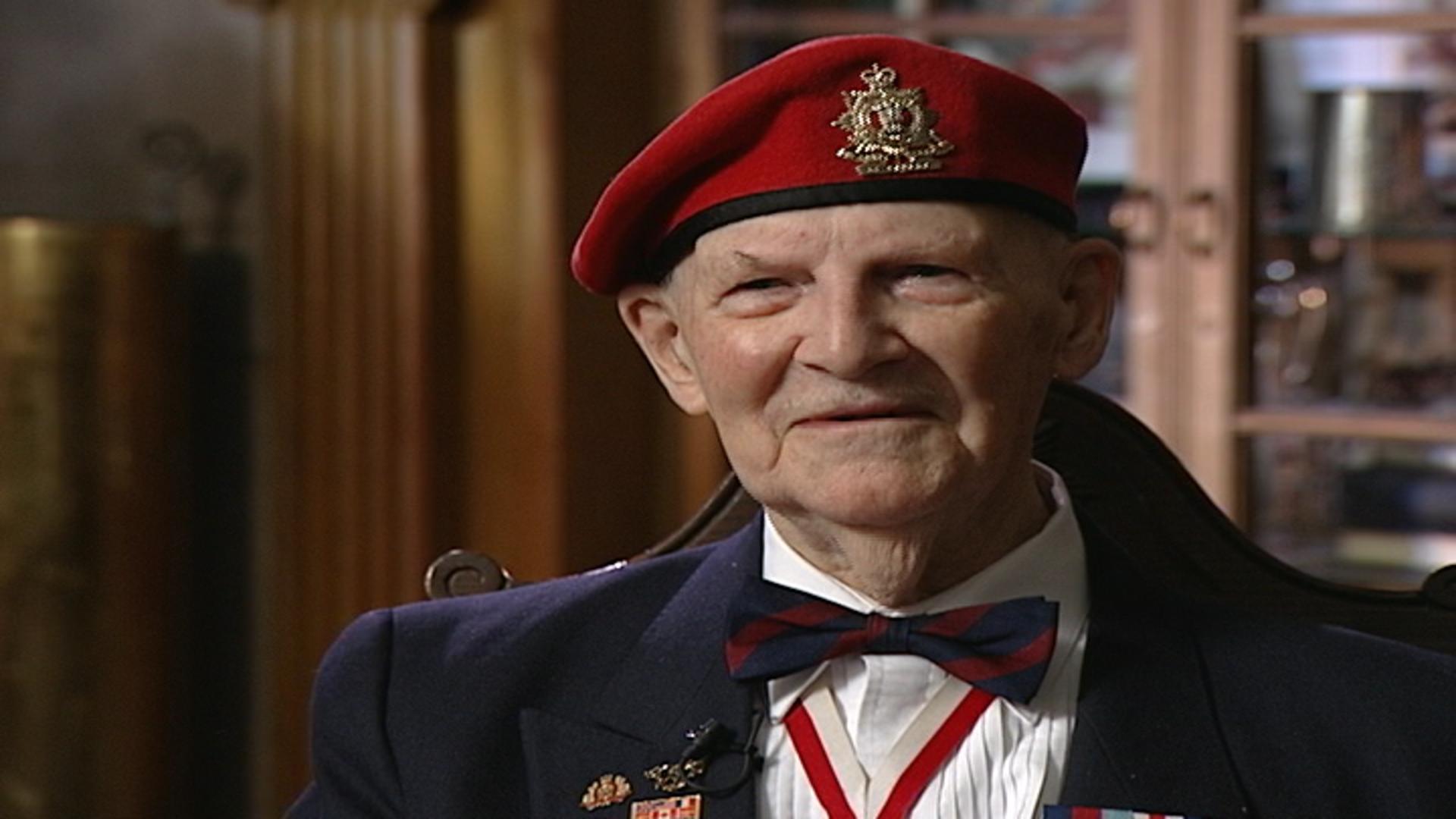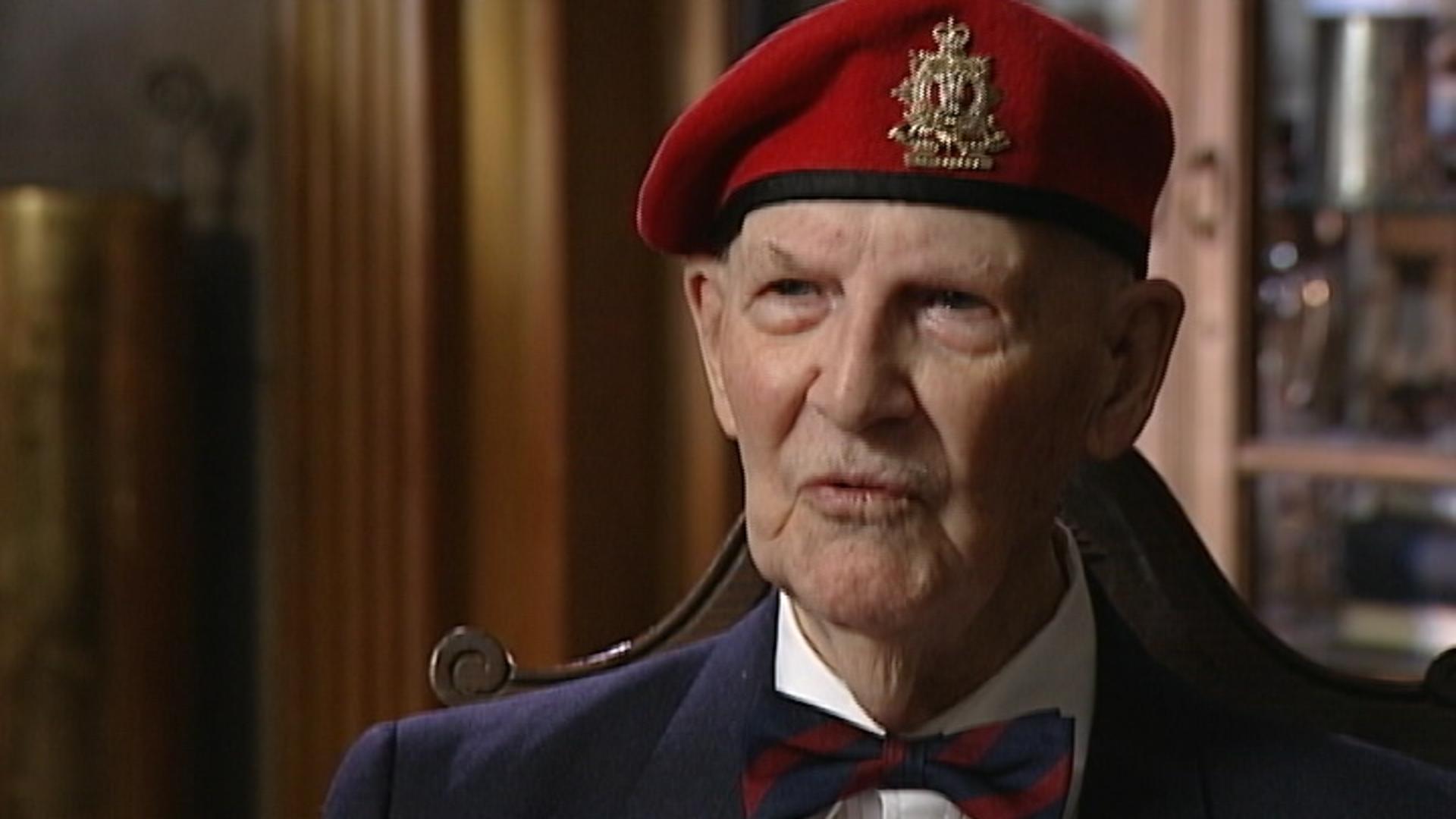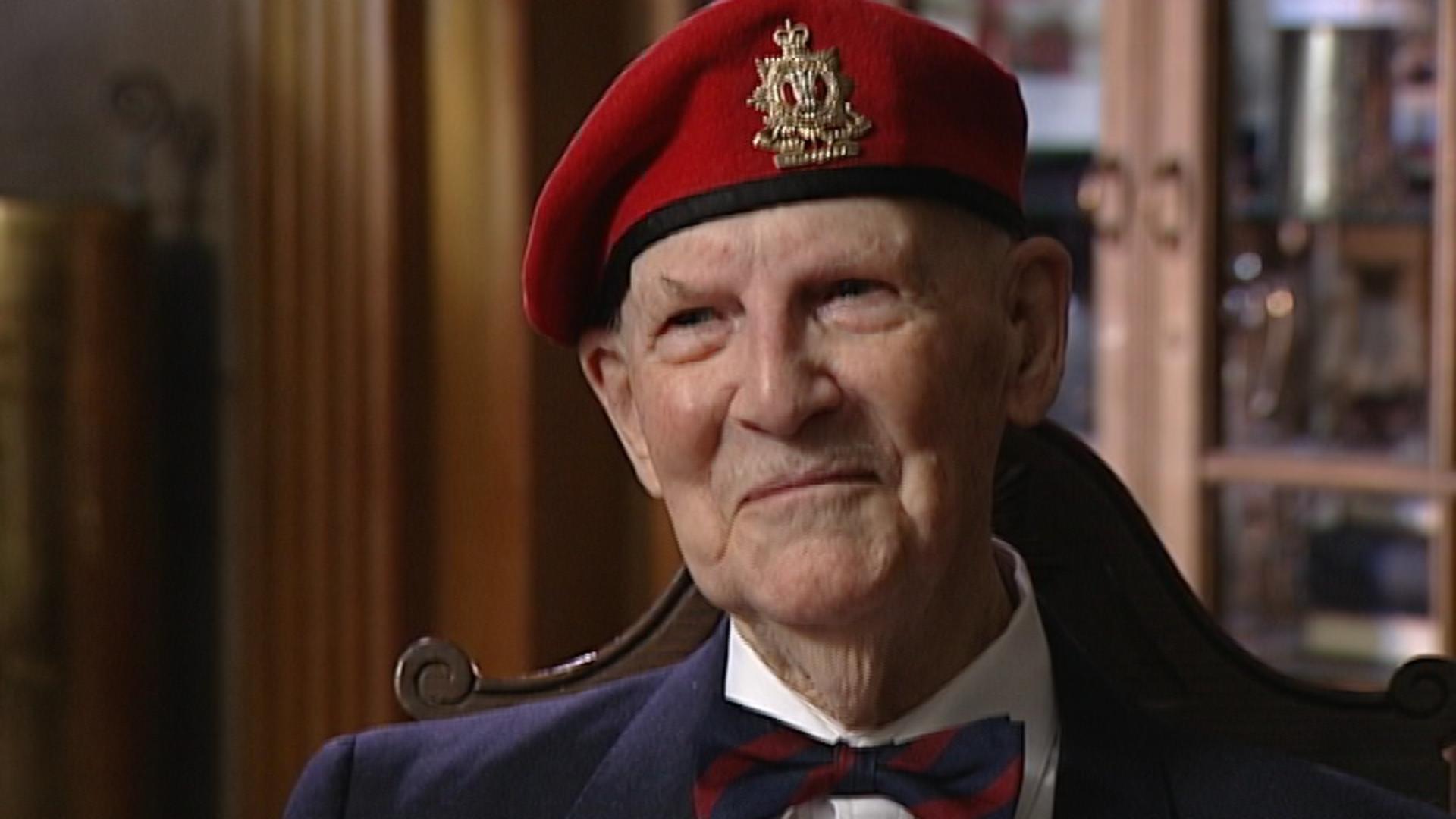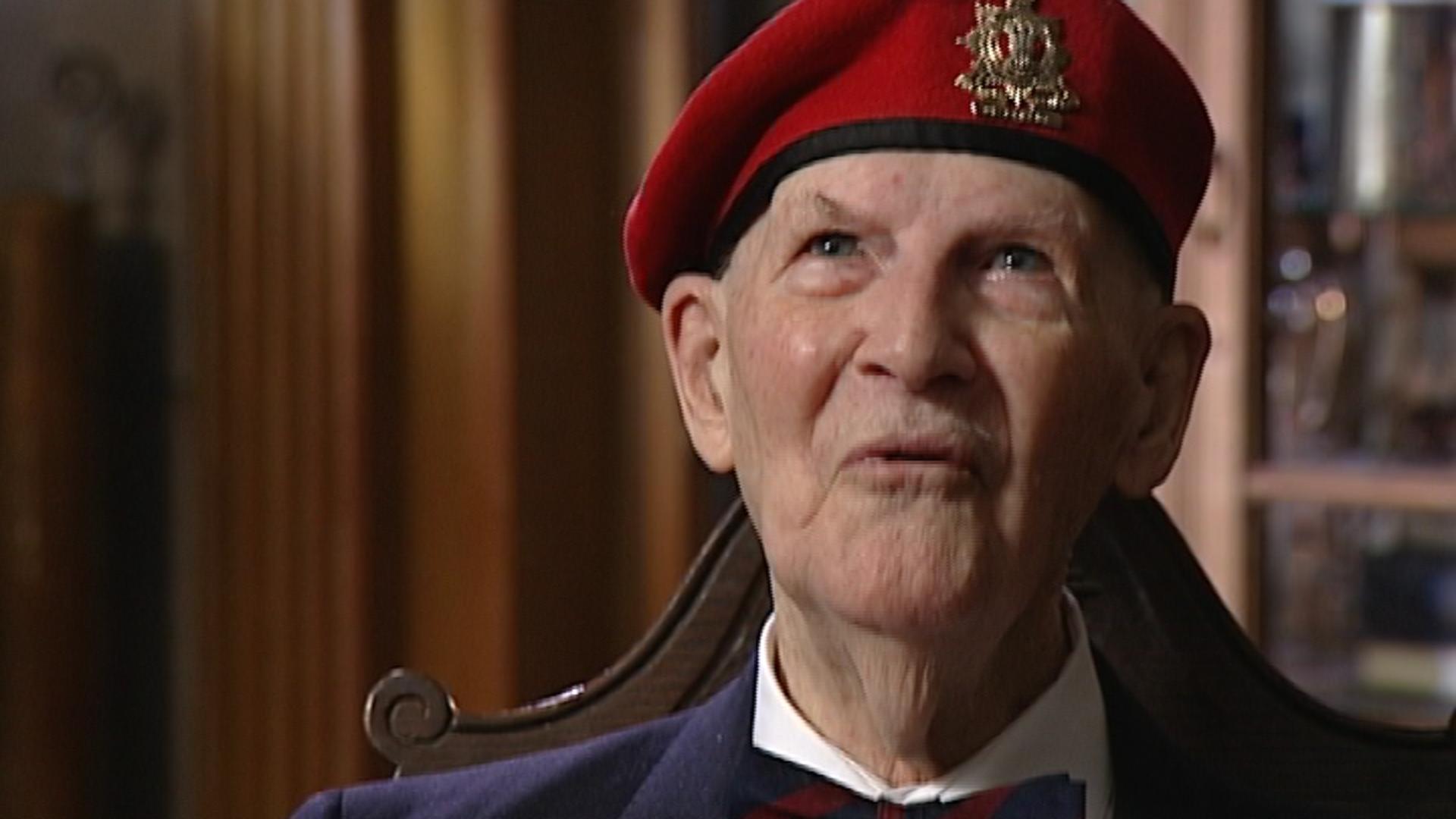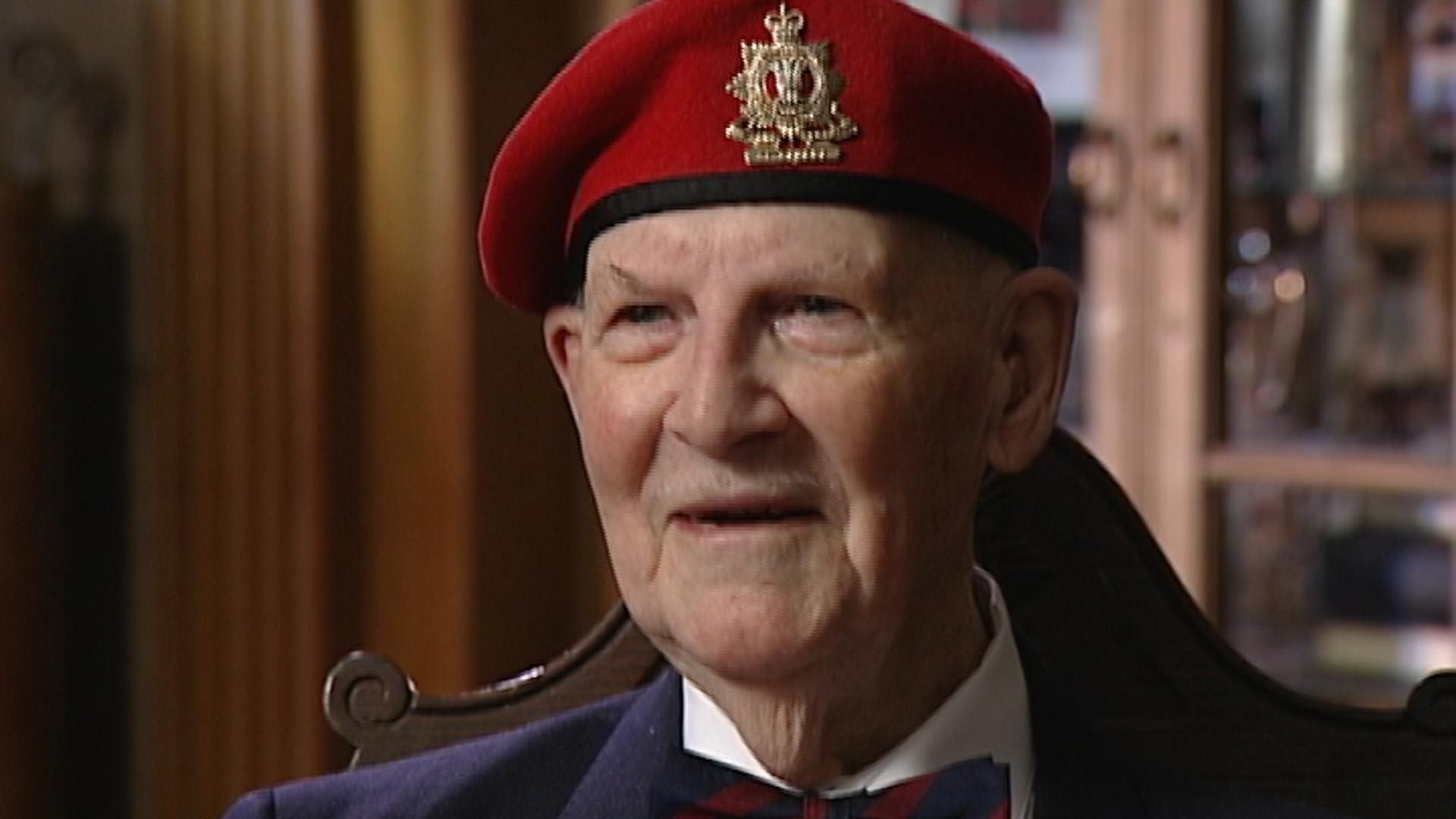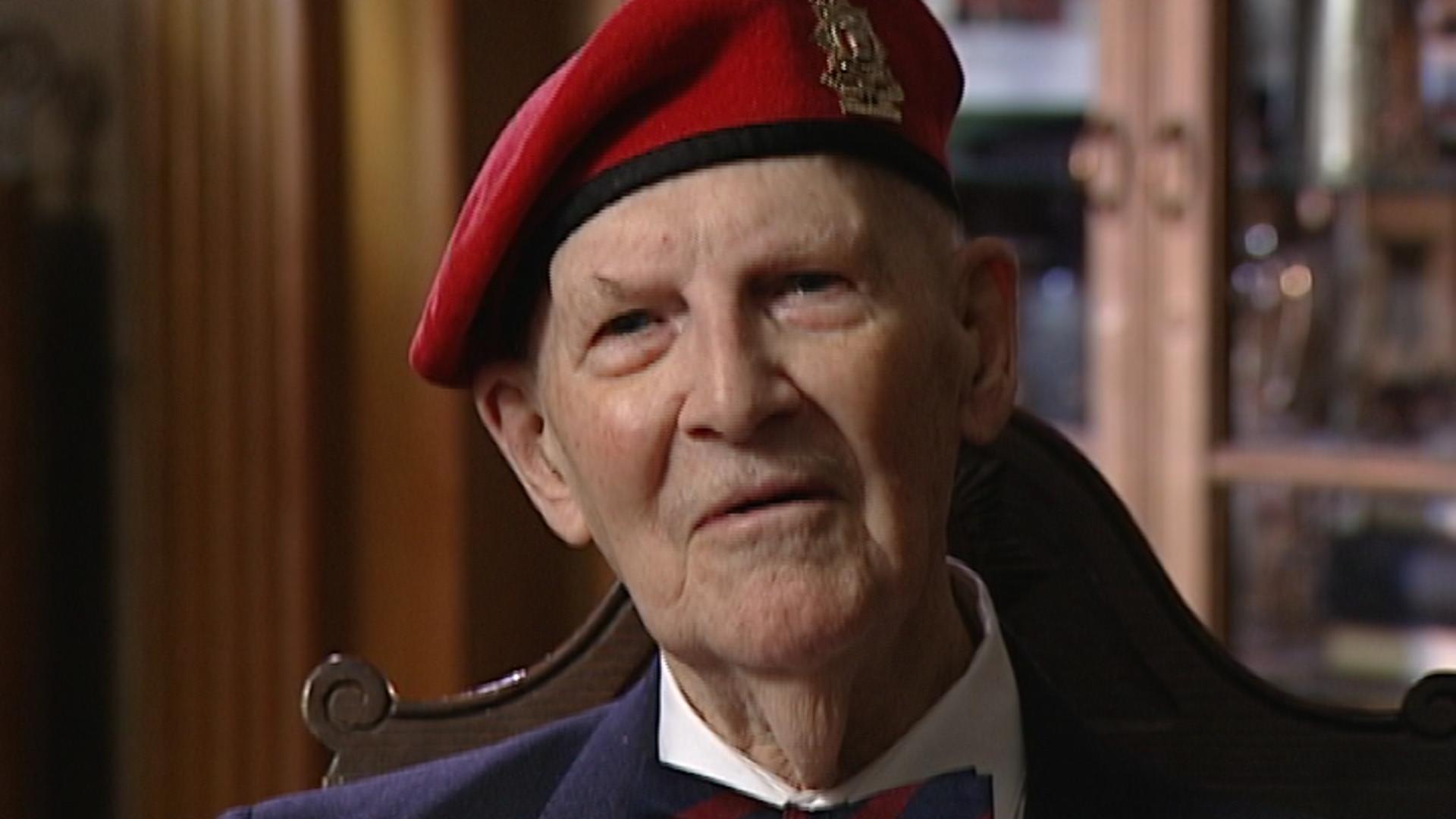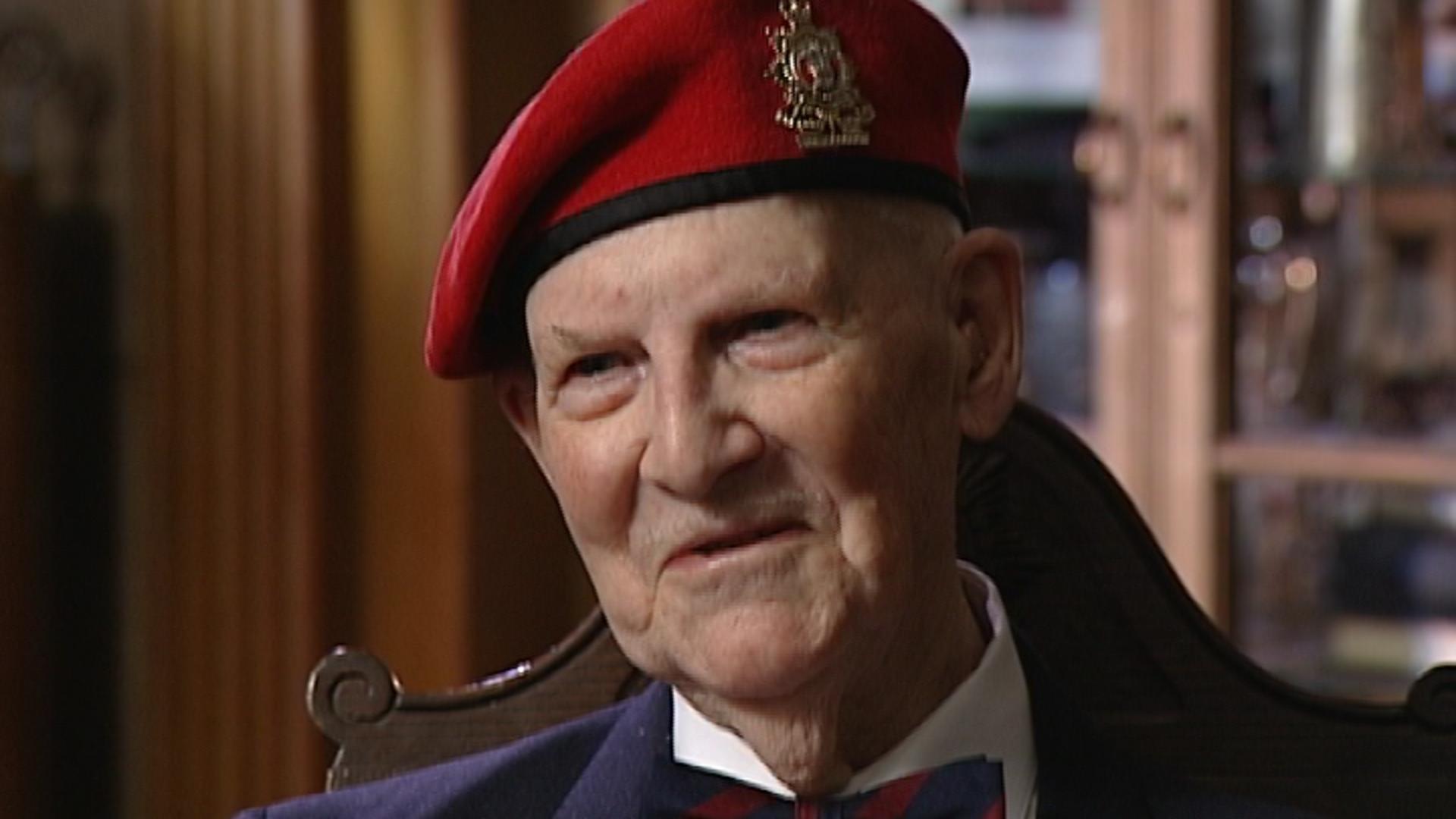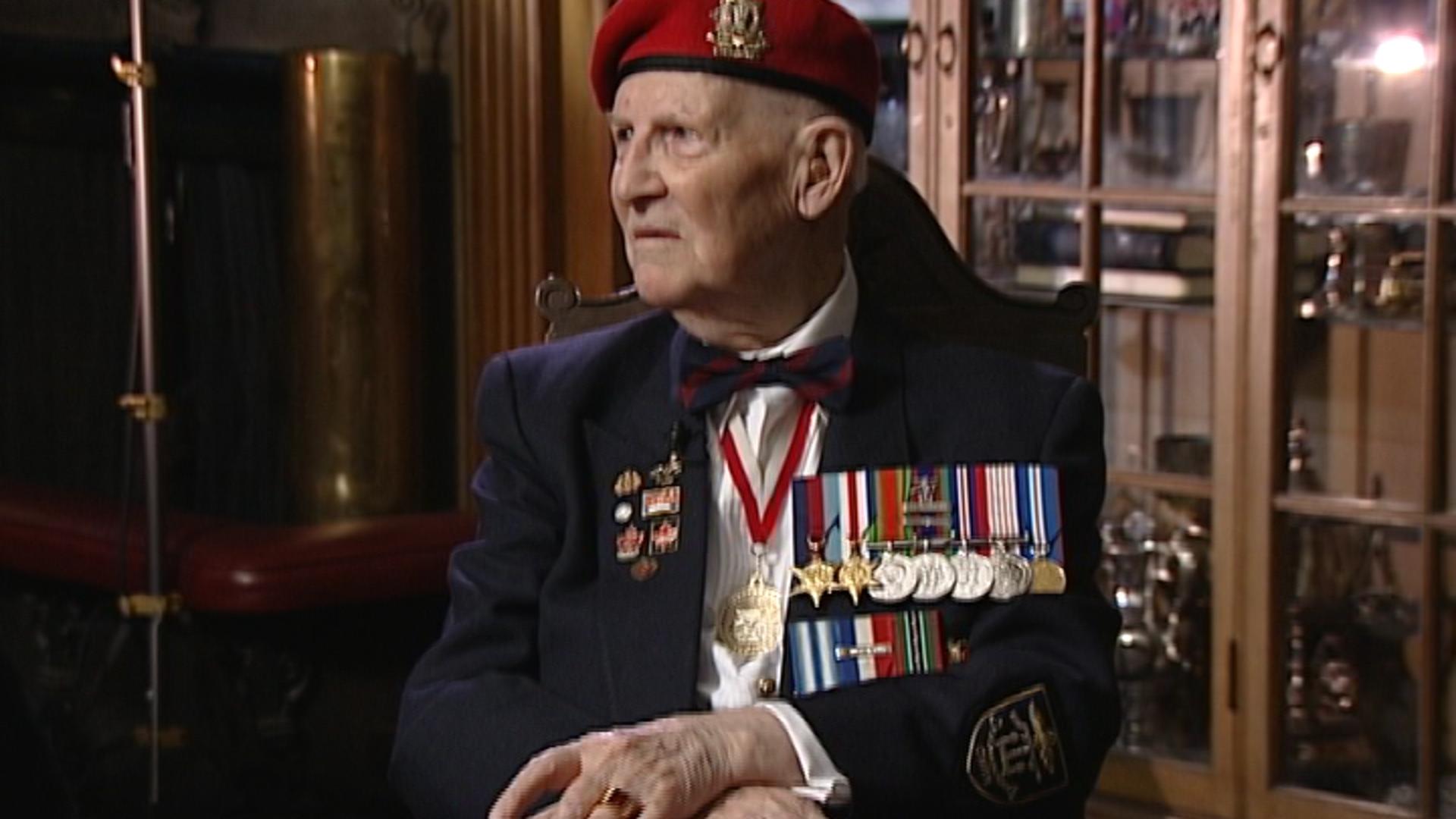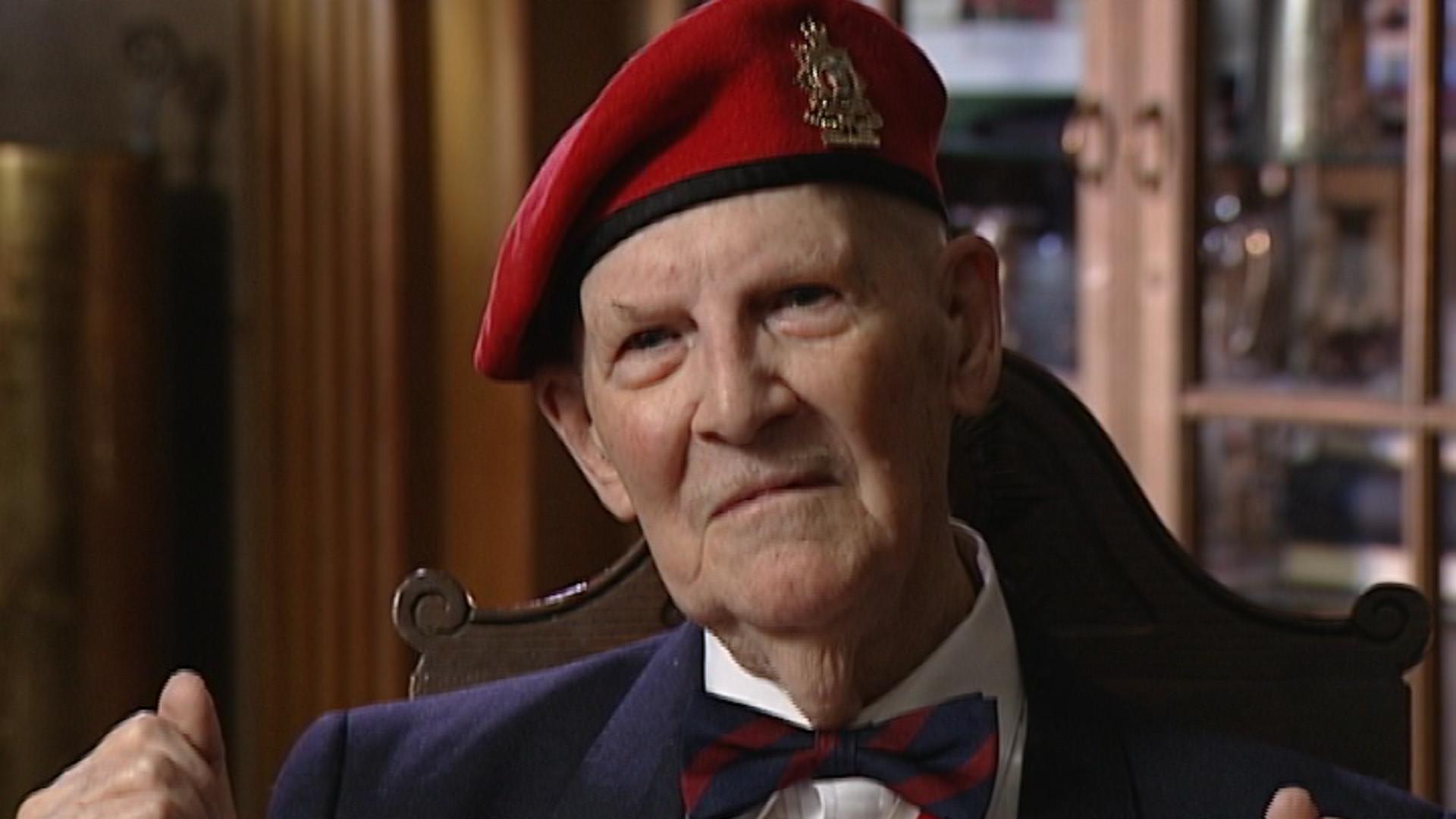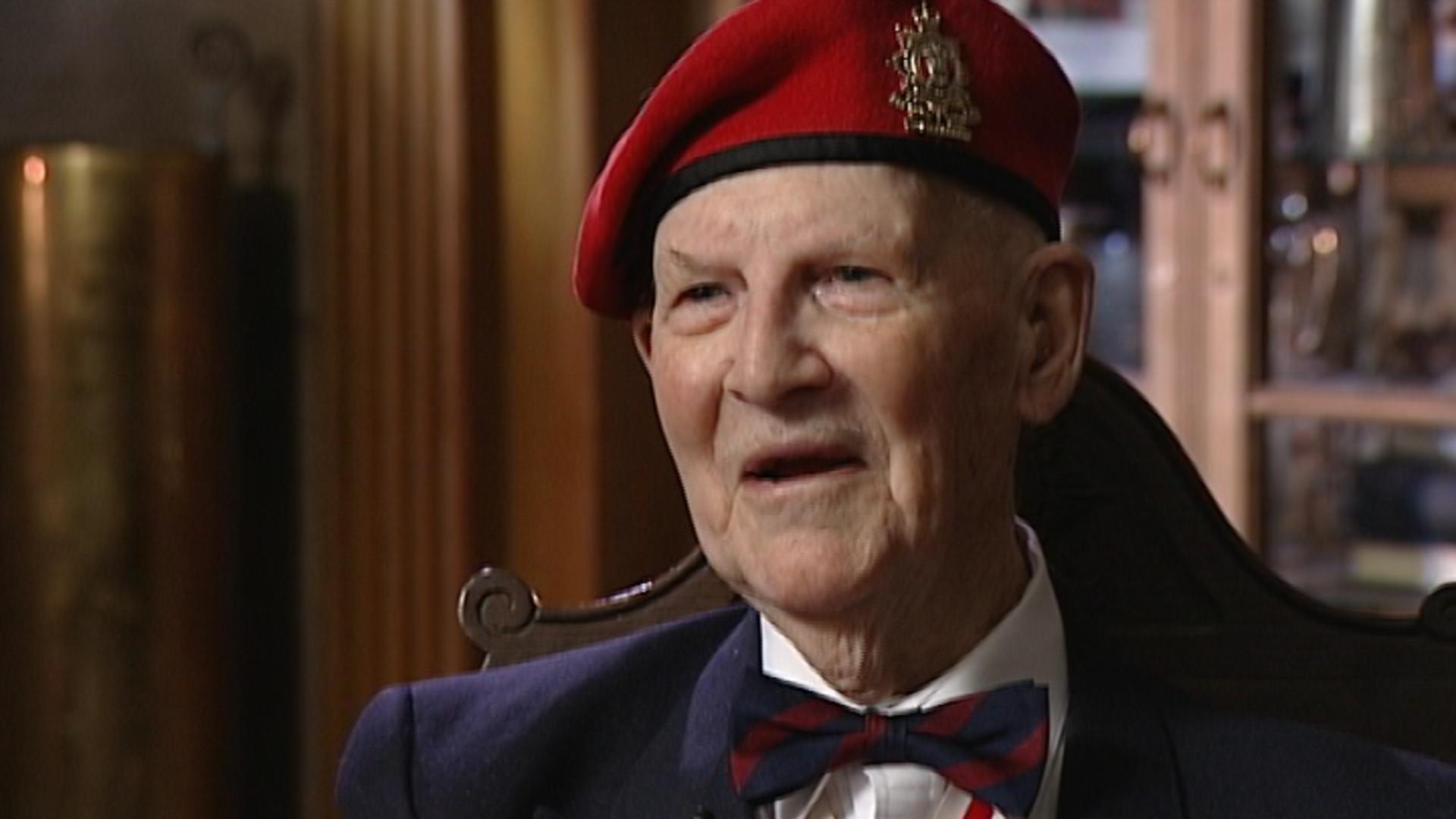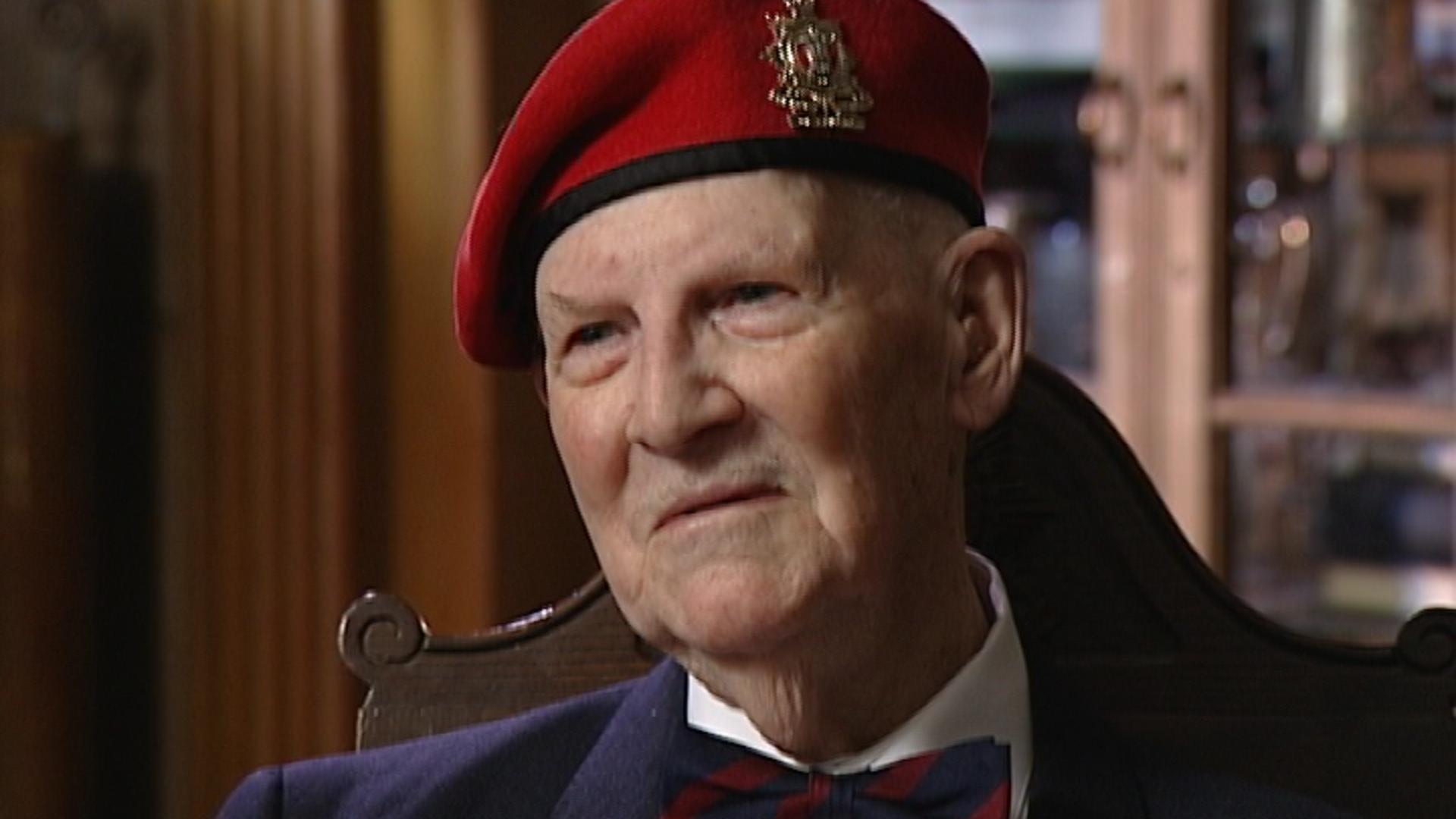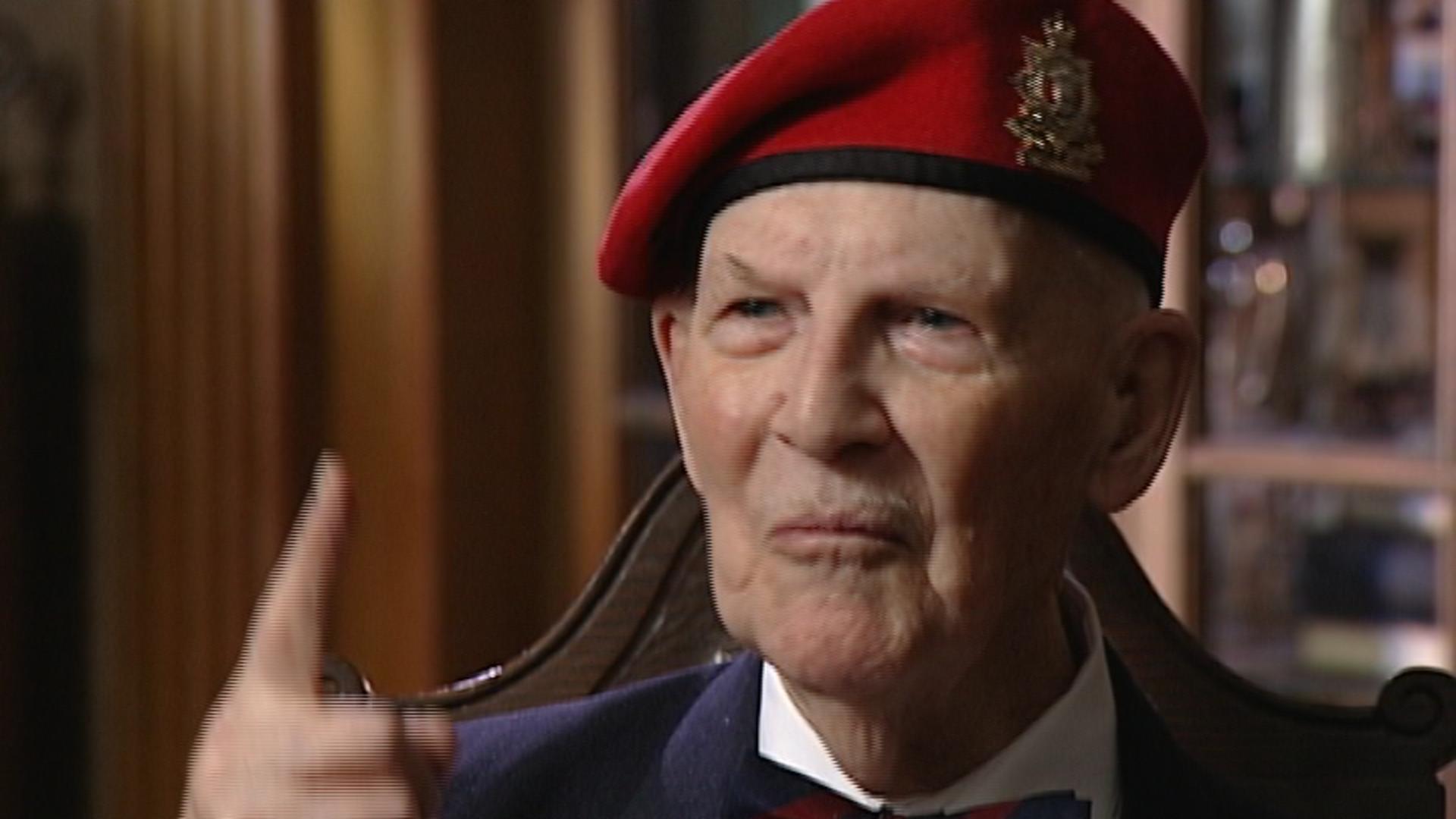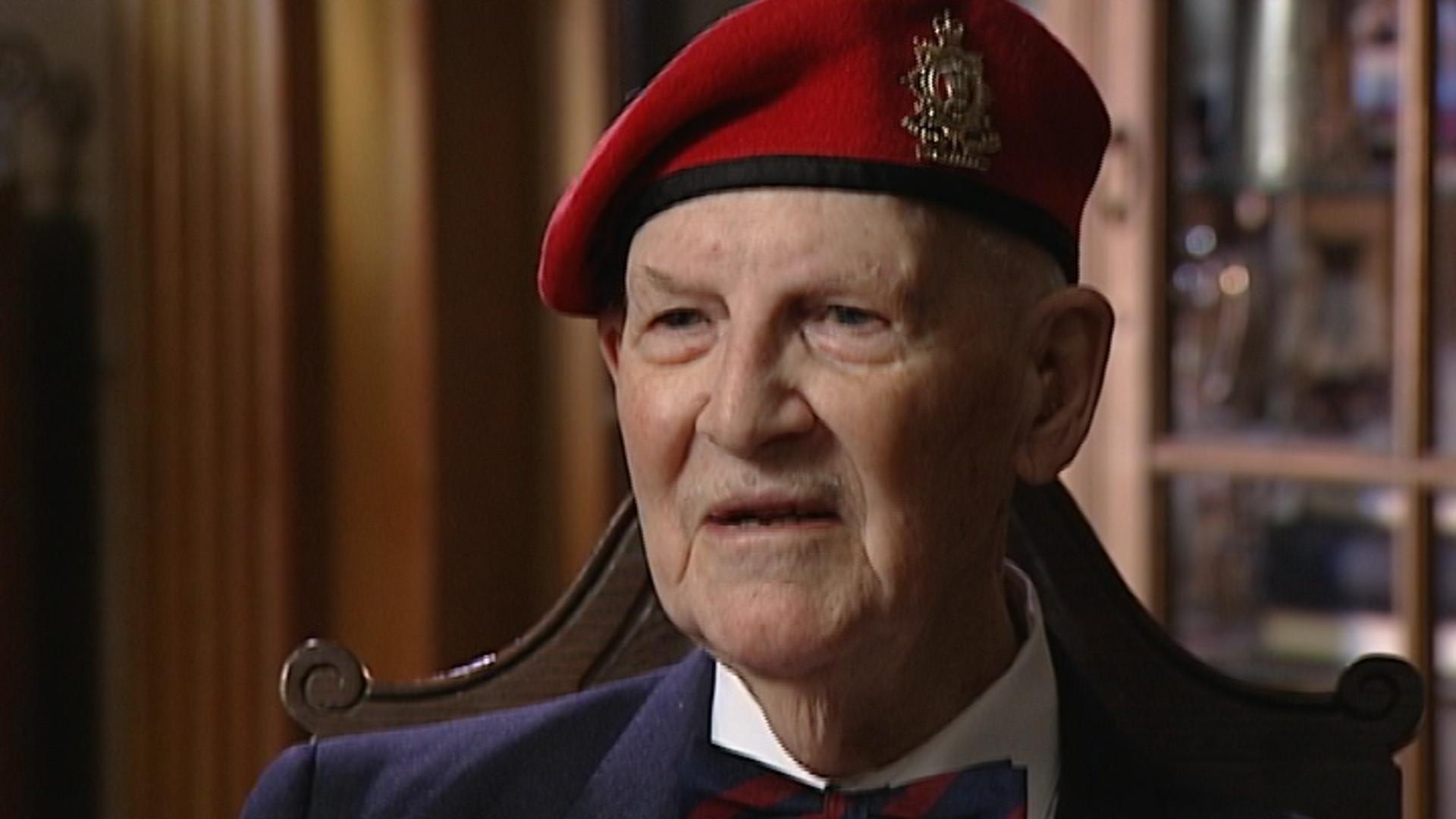The English tipped us off that when
we went in to the camp,
register as a farmer then they won’t
send you to the coal mines
or the factories, they will send you to
the farms and get a little more to eat.
So every Canadian became a farmer.
The Germans couldn’t figure,
just said big country like Canada,
you got no cities, there are no factories?
Everybody is a farmer?
Oh yah well we said, we all come from farms.
We were the only people who
would sign up for farms.
So now they took all the DIeppe personnel
and they separated us and
they sent us up to Star Guard 2D
which was just 30 kilometres out
of Stettin (sp) up on the Baltic so back
in the box cars and the same old routine,
we now land up in Star Guard.
Now we’re going to be sent to work parties.
So the Star Guard is supposed to be a
little better camp so Stalag Gate B
is known as a straff camp,
a punishment camp.
So now we’re going to Star Guard,
we’re going to be good soldiers and
we’re going to work out in the fields
and we’ll be happy as long as we work.
So we get up into Star Guard and
we get all in there,
now they’re going to send us to work.
But the army says you’re still a soldier and
you don’t do anything for the enemy
you don’t get forced to do eh,
you don’t volunteer to work.
You can’t make the officers work and
you can’t make anybody full
corporal or up work, you can’t be sent
to work but anybody under could so
we can be sent to work but we
we do not volunteer to work.
So then they got the process,
who’s at camp so and so,
we need twenty men.
Farm, need nobody.
C’mon guys and they read the names out,
these twenty men will go.
A guy said, “I don’t want to work.”
Okay, bring out the rifles, pull them out,
shove them in there with a bayonet and
get them lined and send them out.
So they’re gone out to work party,
one guy has got to be in charge,
away he goes. Well we wouldn’t go,
had a bunch of renegades in my party and
there was thirty of us,
we were the last to go practically,
we wouldn’t volunteer for nothing,
we wouldn’t go.
So finally they said,“You’re going!”
“No, you gotta make us,”
Okay, the rifle goes there and
out we go and get rounded up and
shipped out to this farm out
in a place called Yago (sp),
out by the Polish Russian
border up on the Baltic,
cold up there on this great big farm.
And we get sent out there and so okay,
we’re all farmers so okay,
you’re going to milk cows.
Well, you know you’re born in the
middle of Bathurst and King Street,
I’m going to tell you how to milk cows.
Anyway we got guys there that know
how to milk cows so we got
guys in between them, we milked cows.
And then you’re looking after pigs and
horses and everything else and
the rest of you are labourers,
me I was in charge of the park.



